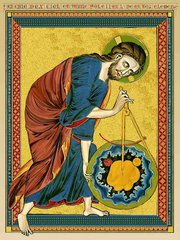
Theology: December 2010 Archives

Note of the Congregation for the Doctrine of the Faith
On the trivilization of sexuality regarding
certain interpretations of Light of the World
Following the publication of the interview-book Light of the World by Benedict XVI, a number of erroneous interpretations have emerged which have caused confusion concerning the position of the Catholic Church regarding certain questions of sexual morality. The thought of the Pope has been repeatedly manipulated for ends and interests which are entirely foreign to the meaning of his words - a meaning which is evident to anyone who reads the entire chapters in which human sexuality is treated. The intention of the Holy Father is clear: to rediscover the beauty of the divine gift of human sexuality and, in this way, to avoid the cheapening of sexuality which is common today.
Some interpretations have presented the words of the Pope as a contradiction of the traditional moral teaching of the Church. This hypothesis has been welcomed by some as a positive change and lamented by others as a cause of concern - as if his statements represented a break with the doctrine concerning contraception and with the Church's stance in the fight against AIDS. In reality, the words of the Pope - which specifically concern a gravely disordered type of human behaviour, namely prostitution (cf. Light of the World, pp. 117-119) - do not signify a change in Catholic moral teaching or in the pastoral practice of the Church.

